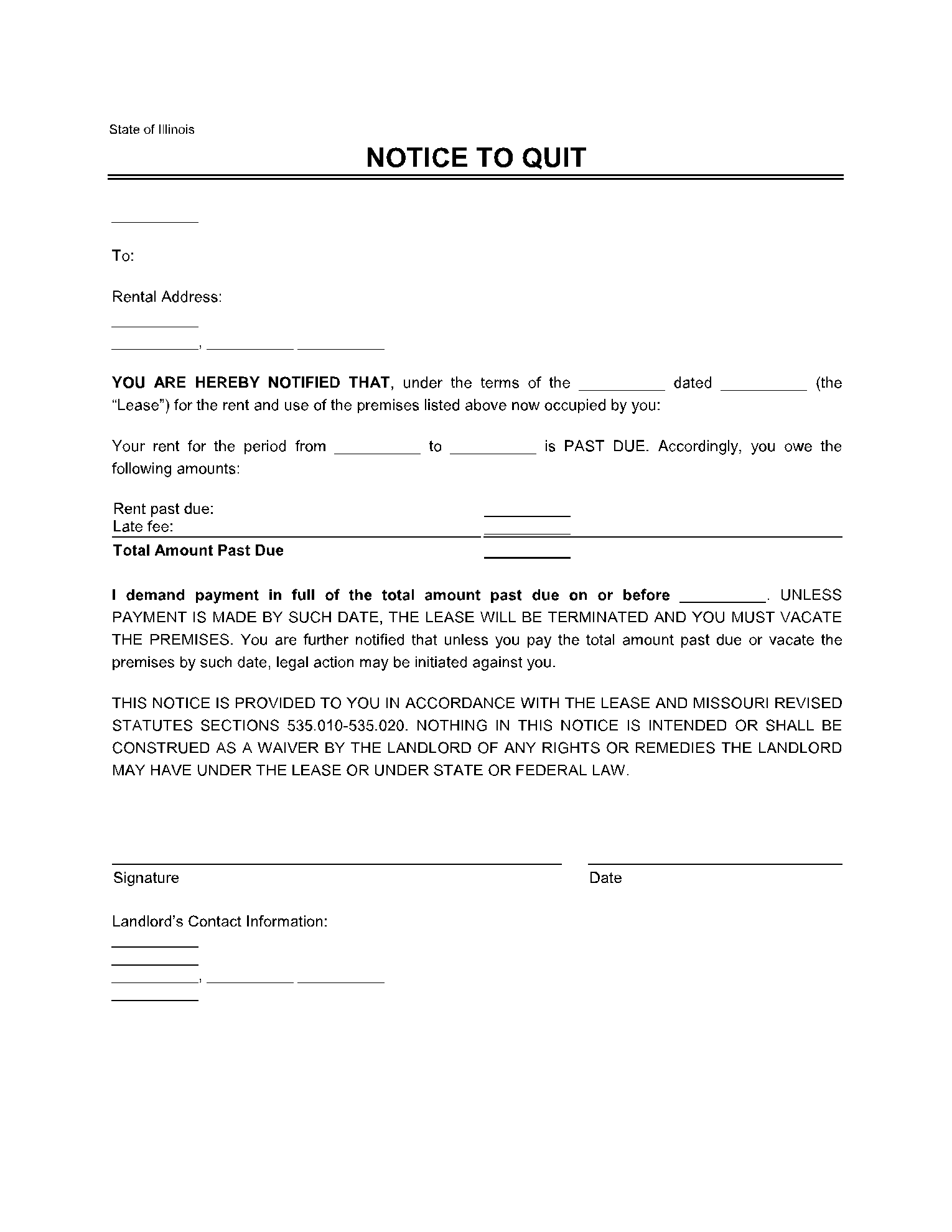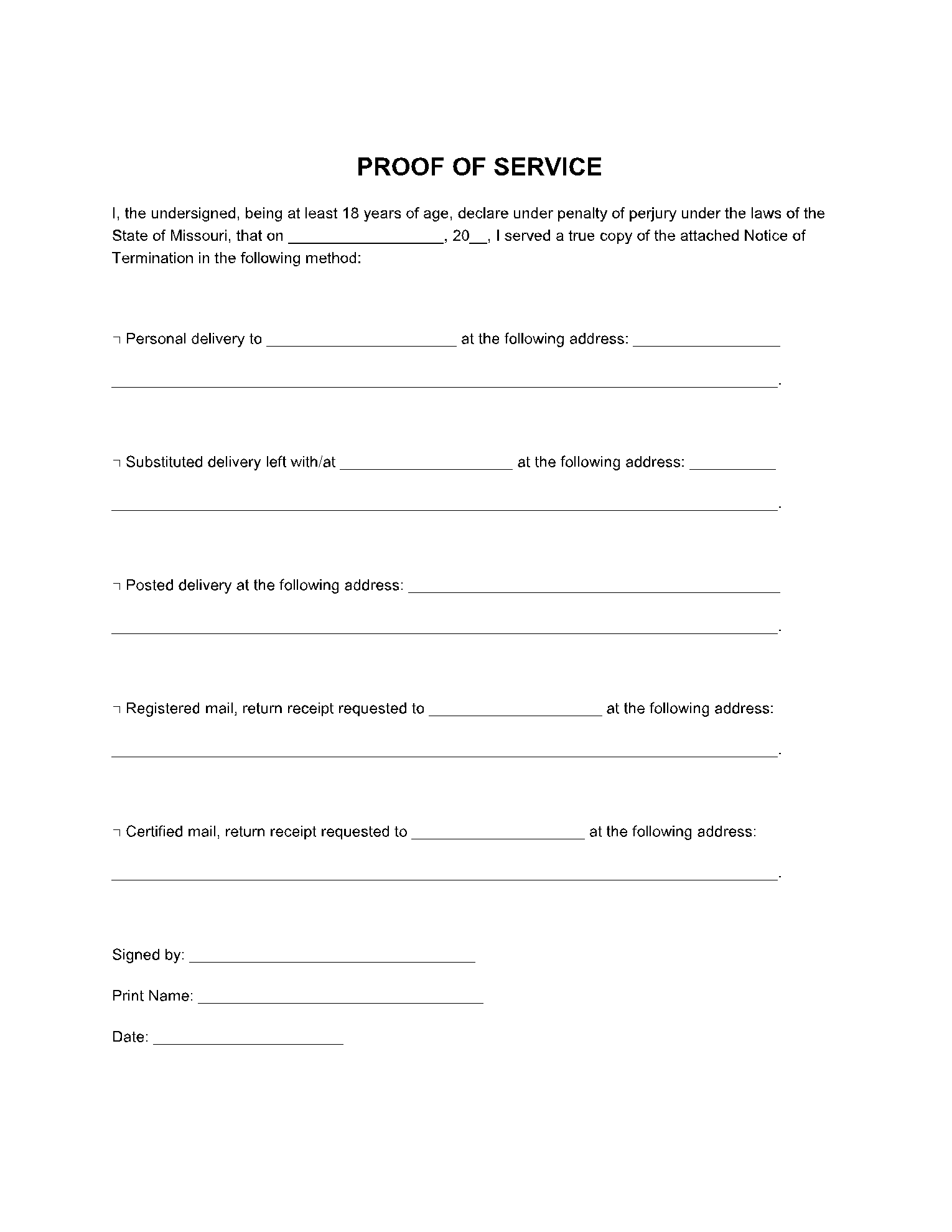In Illinois, both landlord and tenants have rights over the rental property, and when it comes to eviction, both parties must abide by Illinois landlord-tenant law.
If you are a landlord and want to evict your tenant due to either non-compliance or non-payment of rent, you must know that an eviction lawsuit cannot be started against the tenant without a proper eviction notice.
Under Illinois state laws, the landlord must issue properly drafted eviction notice to the tenant to begin the eviction process. Give this article a read to get to know more about Illinois eviction notice and how it works.
What Is an Illinois Eviction Notice?
An Illinois eviction notice is a written notice that is used by a landlord to notify the tenant about eviction proceedings. Simply put, Illinois 5 days notice informs tenants that they have only 5 days to either comply with the request of the landlord or quit the rental property.
In Illinois, landlords cannot change locks at the rental property, remove tenant’s belongings, or cut out utilities without getting the court order. The Illinois eviction notice form serves as the very first step in initiating the eviction process. Eviction notice Illinois is also identified as a notice to quit.
Of note, eviction notice must follow the Illinois landlord-lord tenant laws. Illinois eviction notice enables the landlord to terminate the tenancy legally. Moreover, different types of Illinois eviction notices are used by landlords depending on the type of cases such as non-payment of rent, illegal activity, and violation of lease agreement.
What Is the Eviction Process in Illinois?
Broadly speaking, eviction in Illinois is regulated by the Illinois Code of Civil Procedure. Moreover, landlords must follow specified procedures when filing eviction in court.
It is well-known that eviction takes place for 2 major reasons including violation of lease agreement or if the tenant fails to pay rent on time.
In case of non-payment of rent, the tenant is given 5 days’ notice period to pay all due rents or quit the property. On the other hand, 10 days’ notice is served in case of non-compliance of tenants towards agreed-upon lease terms.
If the tenant does not respond to notice or vacate the property, the landlord has the right to commence eviction proceedings by filing a complaint against the tenant, which is known as Forcible Entry and Detainer Action.
After that, landlords are given a copy of the Complaint and a Summons which is then served on the tenant to instigate the eviction process. In this process, the tenant also has the right to file an answer to counter the landlord’s claims.
Afterward, the court sets a hearing in which a judgment is passed either in favor of the landlord or tenant. If the judgment goes against tenants, they have to quit the property with the specified period.
What Are the Illinois Eviction Laws and Requirements?
In Illinois, eviction laws and requirements are quite robust and protect the rights of both tenants and landlords. It is worth mentioning that a landlord has grounds to evict the tenant only for specific reasons that Illinois State allows.
The landlord can serve the tenant a 5-day eviction notice if the tenant is late on rent. This Illinois eviction notice for non-payment of rent requires the tenant to either pay rent in full or vacate the rental property. However, non-compliance notice requires the tenant to either comply with the rental lease agreement or quit the property within 10 days of eviction notice given.
Furthermore, under Illinois eviction laws, the landlord has the right to give 5-days’ eviction notice to the tenant if he/she is found engaged in any unlawful activity. Of note, there is no option available for the tenant to cure the contract breach.
Under Illinois eviction laws, there is no rent grace period given to tenants meaning that rent should be paid on the due date. Or else, the landlord can serve an eviction notice if the tenant’s rent is 1-day late.
Conclusion
Above mentioned answers regarding Illinois eviction notice imply that self-help eviction methods are highly illegal in Illinois. In case landlords use such methods, they could open themselves up to a lawsuit.
To begin the eviction process in a legal way, landlords need to draft an Illinois eviction notice. You can find various types of eviction forms on our website CocoSign. Visit our website and download the best Illinois eviction form to serve it to your tenant!


